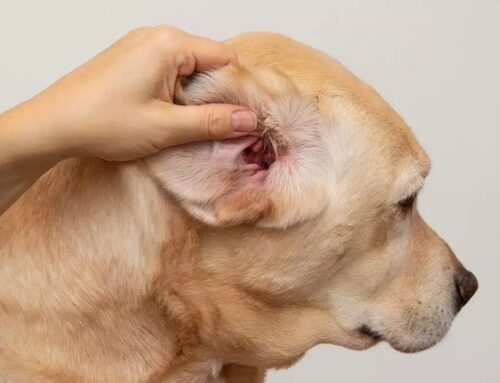Safe Travels: Protecting Pets from Disease
Road trips, camping weekends, and family vacations are more fun when your pet can tag along. But new destinations bring new challenges- from parasites and infectious diseases to stress and environmental hazards that pets may not face at home. Whether you’re traveling across the state or across the country, a little preparation goes a long way toward keeping your furry companion healthy and safe.
At WesVet Animal Hospital in Nashville, we know that every trip is different. Our team provides personalized travel guidance, preventive care, and diagnostics to help your pet stay protected wherever your journey leads. If you’re planning a trip, request an appointment for a pre-travel exam, or contact us to learn what vaccines, paperwork, and precautions are recommended for your destination.
Understanding the Hidden Health Risks of Travel
When pets leave their familiar environments, they’re suddenly exposed to unfamiliar bacteria, parasites, and climates. That shift, combined with travel-related stress, can weaken their immune systems and increase their risk of illness.
A destination-focused wellness plan helps avoid these issues. At WesVet, our veterinary wellness care visits include travel consultations that address vaccines, parasite prevention, motion sickness, and stress management so your pet is ready for anything.
Parasites and Vector-Borne Disease
Fleas, ticks, and mosquitoes thrive in many regions, and all three can transmit dangerous infections. Ticks spread Lyme disease, ehrlichiosis, and anaplasmosis; mosquitoes carry heartworm; and fleas can trigger allergic reactions or spread intestinal parasites.
Parasite exposure varies by location, so it’s wise to plan ahead. If you’re hiking or exploring wooded areas, check your pet daily and remove all ticks promptly. Early detection and removal reduce disease transmission.
Another common concern is Giardia, a microscopic intestinal parasite found in contaminated water. Pets can become infected by drinking from puddles, creeks, or communal bowls at rest stops or dog parks. Symptoms include diarrhea, gas, and fatigue. Pack bottled water or a collapsible travel bowl to prevent accidental exposure.
Waterborne and Regional Hazards
Trips involving swimming or outdoor adventures around lakes, ponds, or rivers can expose pets to a number of diseases and toxins.
Leptospirosis is one of the most serious. Spread through water or soil contaminated by wildlife urine, this bacterial infection can damage the kidneys and liver- and it can also infect people. Vaccination offers strong protection for dogs who spend time outdoors or near water. Our veterinary vaccinations can include the leptospirosis vaccine in your pet’s pre-travel plan.
Hot, stagnant water poses another danger: toxic algae blooms. These microscopic organisms release toxins that can cause vomiting, tremors, and seizures – sometimes within hours of exposure. Avoid discolored or foamy water, and rinse your dog immediately if they’ve waded into a questionable area.
Regional fungal and plant hazards also matter. Dogs traveling through humid regions near lakes or rivers may encounter blastomycosis, a fungal infection that begins in the lungs and can spread to the skin, eyes, and bones. In drier environments, barbed seed heads known as foxtails can burrow into the paws, ears, or nose, causing abscesses or infections.
Airborne Illnesses and Boarding Concerns
Crowded places like boarding kennels, airports, dog parks, and hotels make it easy for respiratory illnesses to spread. The most well-known is kennel cough, part of a group of conditions known as canine infectious respiratory disease. Symptoms often include a harsh cough, nasal discharge, and fatigue. In more severe cases, pneumonia can develop. If your pet will be boarded or socializing with other animals, make sure vaccines are current.
Cats can also experience stress-induced illness while traveling. Stress can trigger feline upper respiratory infection and feline idiopathic cystitis (urinary inflammation), both of which may flare up in unfamiliar environments. If your cat is joining you on the road, we can discuss calming strategies, litter accommodations, and hydration support during your veterinary wellness care visit.
Climate Challenges
Not all threats are microscopic. Many travel hazards are temperature-related.
Pets can overheat in warm cars or on asphalt, especially for pets not used to heat. Plan walks early or late in the day, ensure shade and ventilation during drives, and bring extra water. Never leave pets unattended in a parked car, even for a few minutes.
Cold-weather travel brings its own risks. Salted sidewalks can irritate paw pads, while icy terrain increases the chance of slips or sprains. Pack booties for snowy trips, and dry your pet thoroughly after exposure to sleet or snowmelt.
Helping Pets Cope with Stress and Motion Sickness
Travel can be exciting for humans and overwhelming for pets. Signs of anxiety include whining, panting, drooling, or restlessness. Some dogs and cats also experience nausea or vomiting during car rides.
To make the experience smoother, introduce your pet gradually to their carrier or crate, using treats and positive reinforcement. Short practice drives can help them associate travel with positive outcomes. Bringing familiar bedding or toys also provides comfort.
If your pet has a history of motion sickness or anxiety, mention it during your visit. We can recommend natural calming aids or prescribe safe anti-nausea and anti-anxiety medications for travel days.
What to Do Before and After Your Trip

Before You Go
Schedule a pre-travel exam several weeks before departure. During this visit, we’ll review your pet’s vaccine schedule, check preventives, and discuss any medications or documentation needed. If your destination has specific entry requirements, consult pet travel regulations early so everything is ready in time.
Pack smart: include food, medications, preventives, medical records, first-aid supplies, and a sturdy leash or carrier. For longer journeys, pack extra doses of any prescription medication in case of delays.
After You Return
Illnesses don’t always appear immediately. Watch for coughing, appetite changes, vomiting, lethargy, limping, or urinary issues once you’re home. If you notice any of these signs, contact WesVet to schedule a post-travel check. We may recommend diagnostic tests like fecal screening or blood work to rule out hidden infections.
Being Prepared for Emergencies
Even with careful planning, unexpected problems can happen. Learn basic first aid for pets through pet first aid classes so you can manage minor injuries and stabilize your pet until you reach a veterinarian. Identify local emergency clinics along your route, and store their contact information in your phone.
If you’re in the Nashville area and your pet needs immediate care, WesVet offers emergency care for triage and treatment options. We provide on-site emergency support during business hours and help coordinate after-hours referrals when needed.
Healthy Adventures Start Here
A safe trip starts with preparation. From vaccinations and parasite control to stress reduction and documentation, every step contributes to your pet’s comfort and safety on the road.
Before you set out, schedule your veterinary wellness care visit to ensure your pet is fully travel-ready. You can request an appointment online or contact us directly to discuss your plans. And if a health concern comes up mid-journey or after you return, our emergencies page explains how to reach our team right away.
With WesVet by your side, you can explore confidently knowing your pet’s health travels with you- every mile of the way.






Leave A Comment